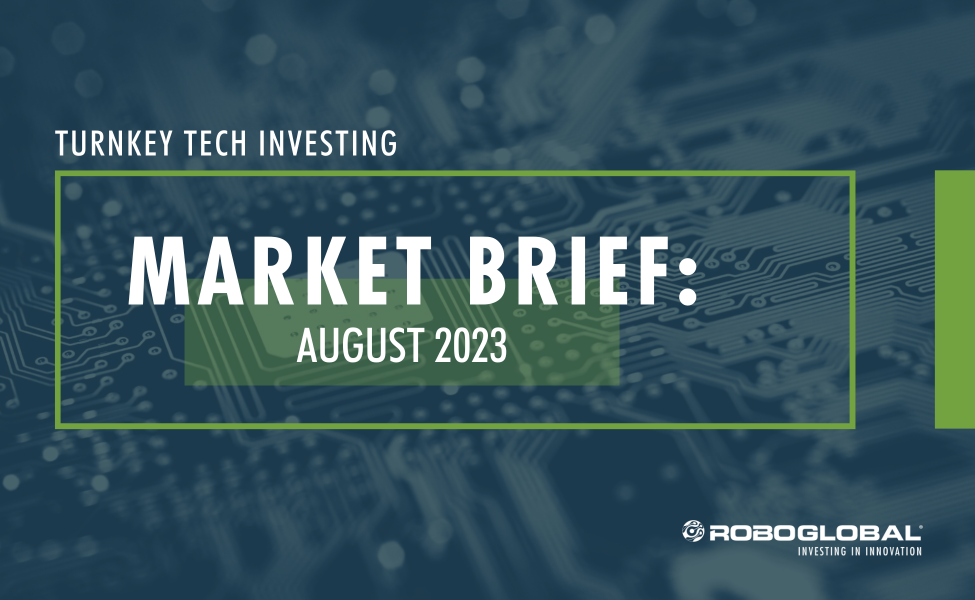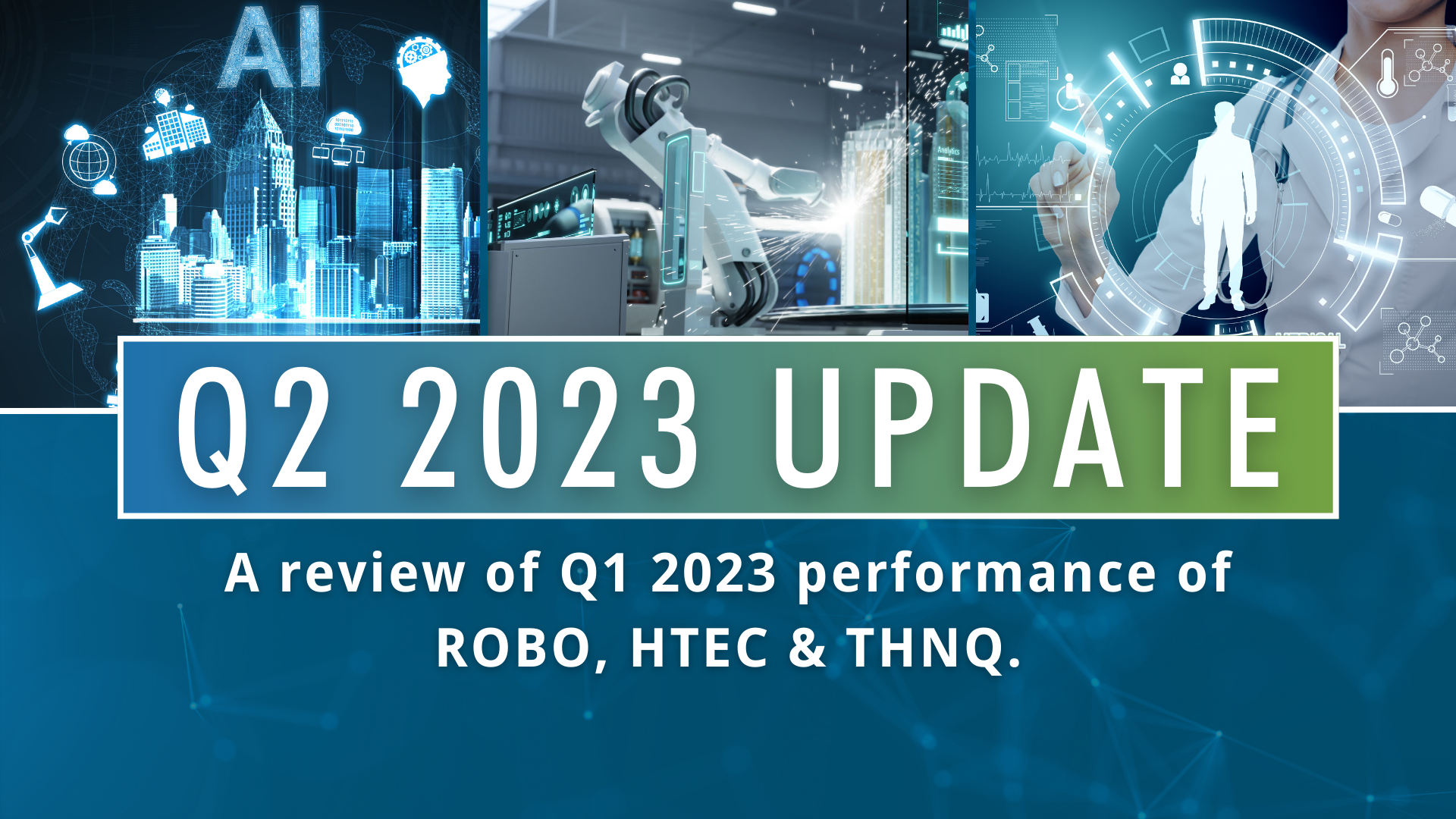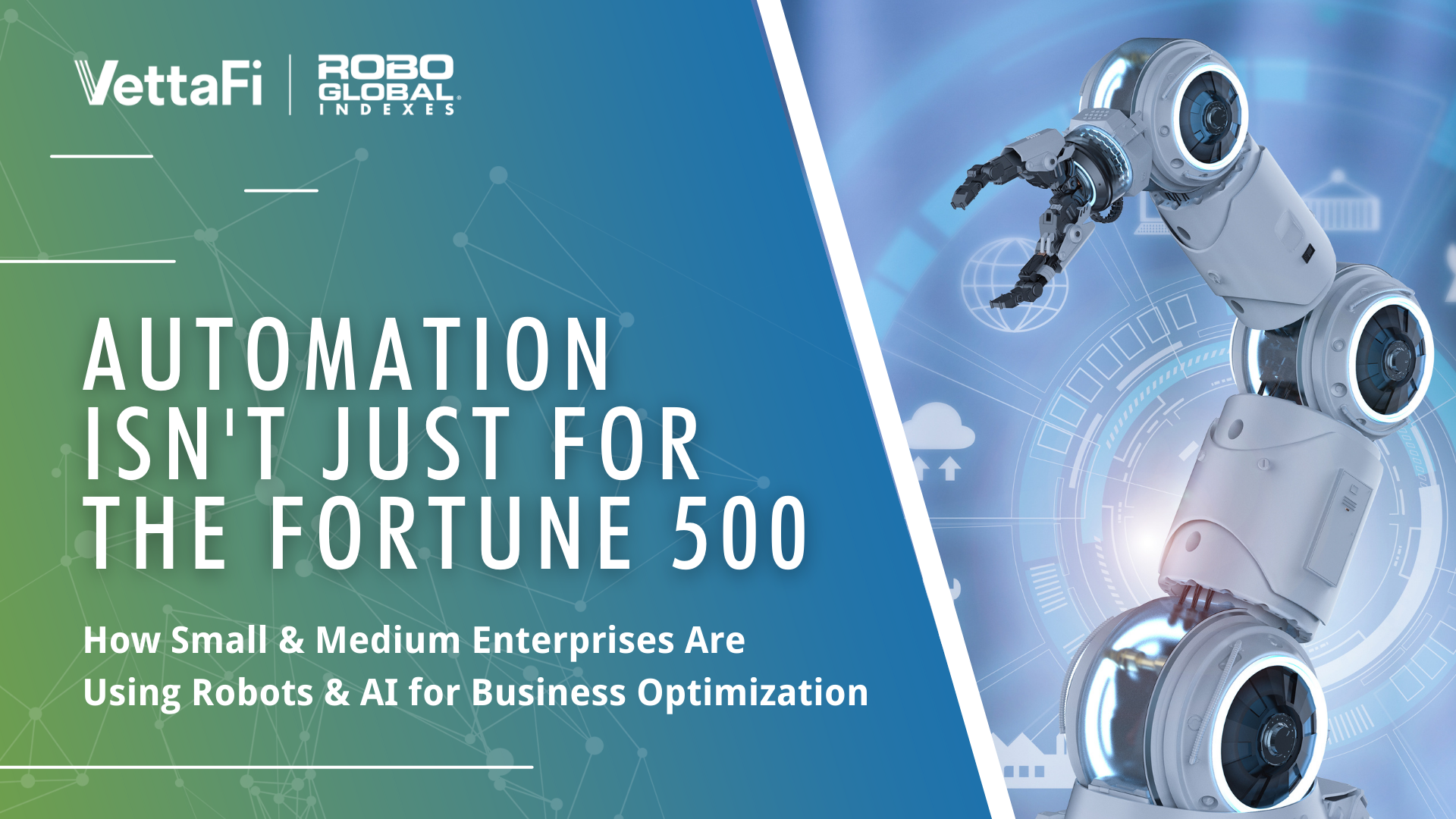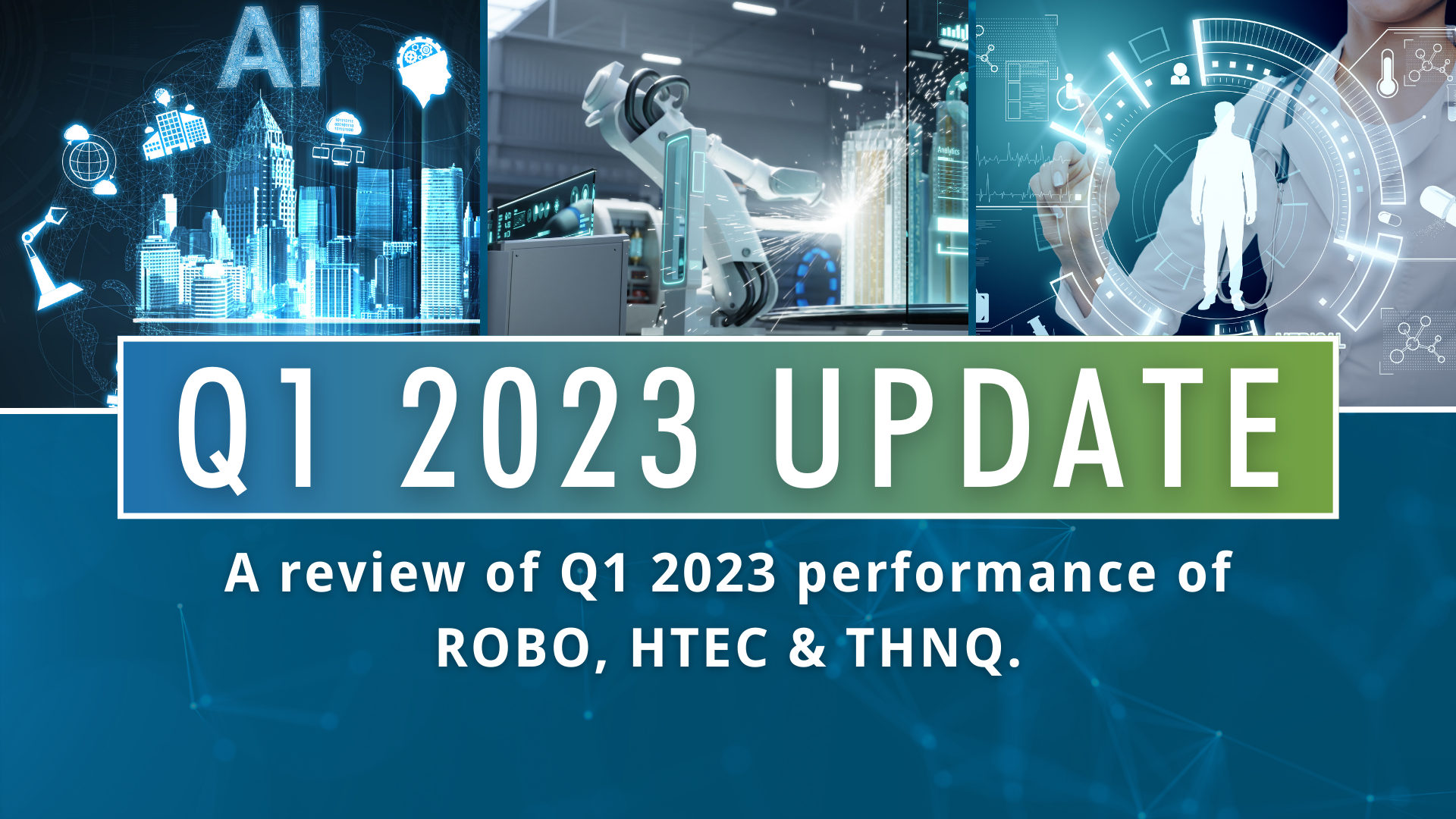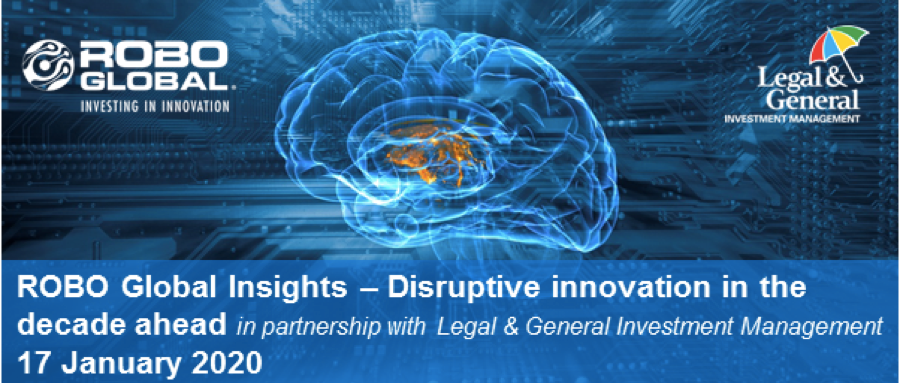By Richard Lightbound, CEO-EMEA & Asia, ROBO Global
When we planned our ROBO Global 2020 Insights event with Legal & General Investment Management (LGIM) in London for mid-January—on a Friday, no less—I confess I was concerned about attendance. The bitter cold, rainy day made me even more worried that our experts would be delivering their valuable perspectives to an empty room. But as soon as we opened the doors, it was clear that the bleary weather was no match for investor enthusiasm for robotics, automation, and artificial intelligence. Before the first speakers took the stage, the room had reached standing-room-only capacity. The event was an absolute sellout—and the perfect lead-in for what promises to be another standout year across the landscape of robotics and AI.
The buzz about the trajectory of robotics and AI was a strong draw, of course, but what was especially impressive about this event was the group of experts that was slated to speak. The opening panel included not one but three of the top names in the field, each a ROBO Global Strategic Advisor. Together, they formed quite a lineup:
- Raffaello D’Andrea is a Professor of dynamic systems and control at ETH Zurich and a co-founder of Kiva Systems (now operating as Amazon Robotics). His TED talks in 2013 and 2016 have drawn more than 20,000 views, and just last month he was inducted into the National Inventors Hall of Fame.
- Daniela Rus is the Director of MIT’s Computer Science and Artificial Intelligence Laboratory (CSAIL). In the last few months, she was named the winner of the MassTLC Innovation Catalyst Award, an honor bestowed on individuals who are making an “exceptional impact on the Massachusetts technology ecosystem,” and selected to serve on the Board of Trustees of the Mohamed bin Zayed University of Artificial Intelligence (MBZUAI)—the first graduate-level, research-based AI university in the world, based in Abu Dhabi.
- Henrik Christensen is Qualcomm Chancellor's Chair of Robot Systems, Professor of Computer Science at UC San Diego and Director of the Institute for Contextual Robotics. The bona fide “godfather of factory automation,” he was awarded the Joseph Engelberger Award in 2011, the highest honor awarded by the industry, and his research has been adopted by companies such as Electrolux, ABB, KUKA, Weda, BMW, Boeing, iRobot, PerMobil, and General Motors.
Hosted by Jeremie Capron, Director of Research at ROBO Global, the panel captivated the packed room, with each of the guests speaking at length about the innovations that are changing nearly every aspect of our world.
Among the highlights of the discussion were the significant shifts that are taking place in Logistics Automation, an area that has been the top-performing subsector within the ROBO Global Robotics, Automation & AI Index since its inception in 2013. Of particular interest was how manufacturers are using Digital Twin Technology to replicate the physical factory floor and manipulate the many variables that drive efficiencies and reduce costs, and to simulate and streamline the entire product lifecycle—from design and manufacturing through marketing, sales, delivery, and servicing. It’s a space that is currently dominated by companies like Dassault Systemes, Autodesk, and Rockwell Automation, all members of the ROBO Global Robotics, Automation & AI Index.
The panel also provided myriad real-life examples of how robotics and AI are now embedded in our everyday lives, and how this trend is expected to grow dramatically in the next 18 to 24 months. From smartphones to smart homes, from autonomous cars to air taxis, robotics and AI is reaching beyond the confines of the industry to change how every one of us interacts with the world—every minute of every day.
Focus on Healthcare Technology & Innovation
In the year ahead, the impact of these technologies may be felt most profoundly in the area of healthcare. The healthcare industry, which struggled for decades to implement any meaningful change to its service model, was an infamous laggard when it came to applying technology to address its challenges. But seemingly overnight, the rate of innovation and adoption has skyrocketed. Today, healthcare is delivering an impressive illustration of the massive shift that can result from the strategic application of technology. The second panel of the day spotlighted why this expansion is happening so rapidly and focused on some of the key technologies that are enabling an unexpected and swift evolution of the healthcare lifecycle. The discussion featured an impressive team of industry experts:
- Jennifer Lee, MD, is a triple board-certified doctor and Chief Medical Director for software provider RecoverX, a US-based digital health start-up.
- Graham Calder is Global VP of Platform Engineering and Information Systems UK-based Babylon Health, one of the largest digital health company’s in the world.
- Lisa Chai is a Senior Research Analyst at ROBO Global with nearly two decades of experience investing in disruptive technologies.
- Panel moderator Carl Bate is a partner at management consulting firm Arthur D. Little and is the co-lead of the company’s digital problem-solving practice. He has extensive experience in assisting digital health companies to help them conceive real-time disease management and medical adherence technology platforms.
One major issue in healthcare is that 1 in 7 patients experiences a misdiagnosis at some point during treatment. The rapid innovation in gene sequencing and the exponential decline in the cost of genetic testing is helping to shift this trend by enabling faster, more accurate disease detection. One example: the gold standard to diagnose colorectal cancer has always been colonoscopy. The prep for the procedure is famously inconvenient and uncomfortable for patients, and the invasive procedure requires outpatient treatment by a physician, as well as anesthesia administered by a licensed anesthesiologist. Thanks to innovation in genetic testing, this traditional and costly approach colorectal cancer screening is being disrupted. Exact Sciences, a member of the ROBO Global Healthcare Technology & Innovation Index (HTEC), now offers Cologuard, a DNA screening test that enables patients to test for colorectal cancer in the comfort of their own home. The test eliminates the challenging prep, requires no downtime, and is reportedly capable of diagnosing 92% of colon cancers and 69% of the highest-risk pre-cancers. The popularity of the test has helped Exact Sciences grow the top line by more than 90%, and growth is expected to continue by over 50% on average for the next several years.
Technology’s impact on improving global access to healthcare was also discussed, including new open data standards that are driving innovations such as the global rise of telehealth, or telemedicine. UK-based Babylon Health, a privately-held telehealth company, connects patients to physicians remotely. The company uses AI to recognize unique ways patients express their symptoms and combines this with the patient’s medical history to help provide physicians with clinical decision support. Notably, Babylon is not using AI to replace physicians or displace the physician-patient relationship, but rather to connect physicians with patients from anywhere and to facilitate more accurate diagnosis. Other players in the space include Ping An, which offers telehealth services to patients in China, and Teledoc, which offers similar services in the US and was the first company in the space to go public. Both companies are well-positioned for growth in this fast-growing area of healthcare technology. Both companies are members of the ROBO Global Healthcare Technology & Innovation Index (HTEC).
The healthcare panelists stressed the extremely fast rate of adoption of healthcare technologies in a wide variety of specialties—including precision medicine, diabetes treatment, and hospital communications and operations. The speed of innovation makes it challenging to determine who tomorrow’s market leaders will be, which is why the diversification within the ROBO Global Healthcare Technology & Innovation Index (HTEC) is particularly important for investors seeking to increase their concentration on a theme that is often underappreciated and under-allocated.
Looking to the future of healthcare
As the event concluded after lunch, it was clear that the attendees were impressed by both the innovations that are already making a real-world difference today and excited about the potential for future growth across the theme. It’s not very often that such a group world-renowned specialists in robotics, AI, and healthcare innovation is assembled in one room to share their insights and perspectives, and their excitement about what lies ahead was infectious. Together they made this very clear: robotics and AI technologies are transforming the global economy in ways that were unimaginable just a decade ago, and investors who recognize and act on that opportunity now are sure to benefit.

